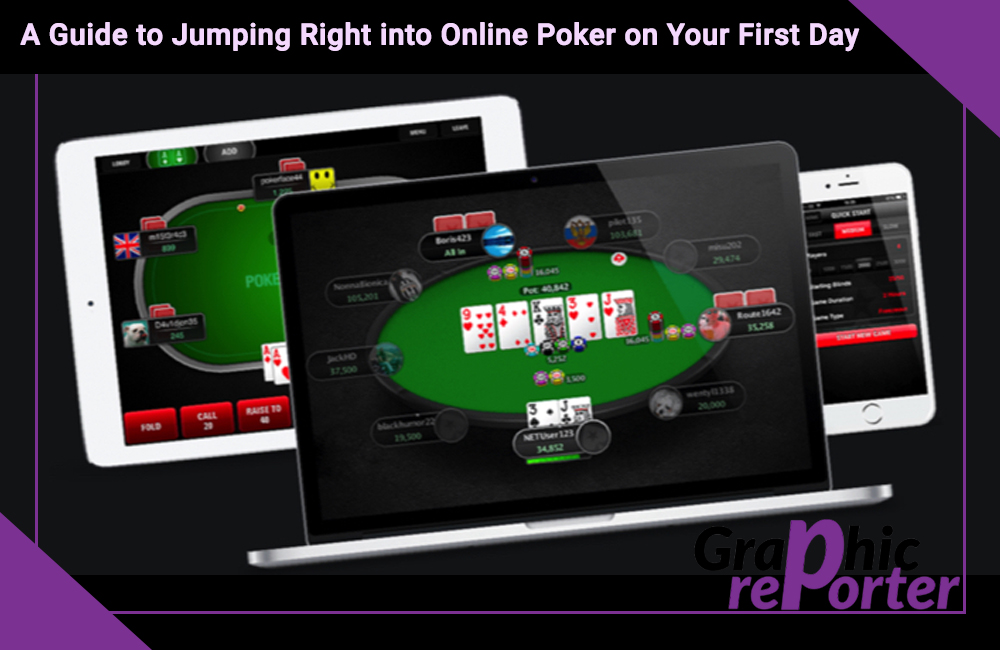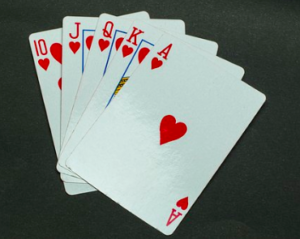Find Success Right Away! A Guide to Jumping Right into Online Poker on Your First Day

Playing online poker, whether for free poker or real money poker, is a popular pastime with a storied history. It’s also a game that has been studied extensively and has given rise to several different theories of strategy.
Photo by Pixabay
So if you’re ready to get started on your first day as a poker player, where do you begin? Before you sit down at the table, there are some important steps that you must take in order to give yourself the best chance for success. Read on for an in-depth guide that will help you draw upon both general principles and real-life examples to make sure you hit the ground running.
Table Of Contents
Step 1: Learn the Rules of the Game
The first and most crucial step is learning how to play poker before even thinking about betting money. Whether it’s Texas Hold ‘Em, Omaha Stud, or other poker games online, take time away from the table to familiarize yourself with the basic rules so that once you do sit down, you won’t have any misunderstandings about winning hands, bets, or gameplay in general. This can be done by reading online guides, watching YouTube tutorials, or playing practice rounds with friends and family who already know how to play. As they say, practice makes perfect—but only when it comes to mastering the basics of poker.
Mnemonics can be a powerful tool for learning and understanding poker rules quickly. Here are some strategies you can use to create your own mnemonics:
Use Acronyms
Create an acronym by taking the first letter of all of the main poker rules or terms you need to remember and combining them into one word or phrase. For example, “FPTV” could stand for “Fold, Pre-Flop, Turn, and River.”
Rhyme It Out
Creating a catchy phrase that rhymes with the concept you want to remember can make it easier to recall when necessary. For example, use the phrase “Bet up high if your cards fly” to help you remember the concept of playing aggressively pre-flop.
Associate It With Something Familiar
This is a great way to connect something new with something that’s already familiar. Think of something in your everyday life that’s related to what you’re trying to learn, and link it together in your mind. For example, remembering which hands are better than others could be linked with a rock/scissors/paper game.
Photo by Pixabay
Step 2: Understand Basic Strategies and Techniques
Once you know the basic rules of poker, take time to explore strategies and techniques that will improve your chances of success while playing at any level of gameplay—whether casual or competitive, in free poker games or real money poker games. It helps to understand odds calculations and when certain cards should be played versus others; recognize patterns in hands; identify tells; spot bluffs; and play aggressively but not recklessly.
You should also explore varying approaches such as loose/passive versus aggressive/tight style plays, which can mean the difference between winning big money and walking away empty-handed.
Reading books is one of the best ways to understand the basic strategies and techniques that you can use in both free online poker and real money online poker. Here are some recommended books for beginning players:
- Harrington on Hold’em by Dan Harrington and Bill Robertie – This series provides essential information on tournament play and how to win in every part of the game.
- No-Limit Texas Hold’em: The New Player’s Guide to Winning Poker’s Biggest Game by Mark McLaren – A comprehensive overview of no-limit hold’em covering everything from basics to advanced theory, this book is perfect for newer players looking to build a solid foundation of knowledge.
- The Intelligent Poker Player by Dan Harrington – This book provides detailed advice on when to bet, raise, or fold in any type of situation.
- Winning Low Limit Hold’em by Lee Jones – This is an excellent introduction to playing low-limit hold’em games and includes useful tips for improving your game as well as practical exercises to help you understand the strategy better.
Step 3: Develop Mental Toughness & Gain Self-Awareness
It isn’t enough just to know how poker works if you want long-term success at the table; it’s also important to develop mental toughness and attain self-awareness as they relate to your playing style and other players at the table. Self-awareness means understanding your weaknesses while playing poker (i.e., the tendency to bluff too often).
Mental toughness helps overcome bad beats while keeping emotions in check throughout each hand played – no matter how good or bad things seem during any particular session. Both traits are differentiators between average players and those truly devoted to becoming professionals at this game of luck and skill—but mostly discipline and mental fortitude overall!
Step 4: Observe Others At The Table & Learn From Mistakes
One way professionals gain valuable insights into their own gameplay is by observing others at their tables—pay attention not just to what strategies opponents use but also to what innate qualities make them successful (or unsuccessful) against certain plays made against them throughout each session! This includes understanding “theory crafting” – developing creative imaginings around how other players could potentially act based on their reactions when faced with different scenarios during each round played out—from beginner levels all the way up through professional tournaments where millions can be won depending on skill alone.
Additionally, learning from mistakes is key: Don’t repeat them twice if possible! Keep records about what didn’t work before trying something new, such as always being patient during preflop betting instead of rushing into action without consideration for pot odds or VPIP (Voluntarily Put Money In Pot).
Photo by Pixabay
Finally, don’t forget to have fun along the way too — because after all, this is a game meant for enjoyment! By following these tips outlined above (rules and terminology knowledge + strategy development + mental fortitude + observation/learning from mistakes), your journey towards success begins right away at any stakes level.
Try your first poker game today at GGPoker, the world’s largest poker room!








![How To Stream Netflix On Discord In 2023 [Step By Step]](https://graphicreporter.com/wp-content/uploads/2022/08/How-To-Stream-Netflix-On-Discord-768x499.jpg)
